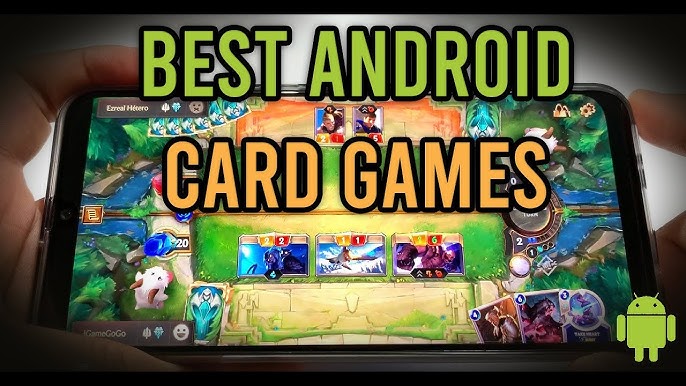
Tech by Android – Popular Android card games and board games attract millions of players every day. People of all ages install these games because they combine entertainment with strategy. Developers continuously improve graphics and mechanics to create immersive gameplay. Moreover, online multiplayer options encourage players to connect with friends easily. Because mobile devices are portable, players enjoy quick sessions anytime. Consequently, card and board games remain among the most downloaded apps.
“Read More: EL VALLE GRITA Musical Art: Self Expression, Communication of Feelings”
Mobile card and board games dominate downloads for several reasons. Firstly, they provide quick entertainment during breaks or travel. Secondly, they require simple mechanics that players of all ages understand. Additionally, developers design these games with colorful visuals and smooth controls. As a result, users feel engaged immediately. Moreover, social features allow players to challenge friends. Finally, constant updates ensure the games stay fresh.
Classic board games transition smoothly into mobile platforms today. Because rules are already familiar, players adopt digital versions quickly. Furthermore, developers integrate online matchmaking to expand community interaction. For example, chess and Monopoly attract millions worldwide through apps. Additionally, mobile adaptations offer tutorials for beginners, making learning easy. Consequently, both experts and newcomers enjoy playing together globally.
“Read About: How 6G Networks Could Change Global Connectivity”
Online multiplayer strengthens community bonds significantly. Since players connect across countries, friendships grow naturally. Furthermore, tournaments and leaderboards encourage healthy competition regularly. As a result, gamers feel part of larger communities. Additionally, in-game chat options enhance interaction during matches. Therefore, multiplayer keeps players active for longer periods. Moreover, collaborative modes teach cooperation beyond individual skill levels.
Strategy-based games challenge players’ critical thinking skills constantly. Because every move matters, players analyze situations carefully. Furthermore, unpredictable outcomes keep sessions exciting. For instance, card games like Poker or Hearthstone require deep strategy. Additionally, turn-based board games encourage long-term planning. As a result, these experiences sharpen problem-solving abilities effectively. Therefore, strategy games appeal to learners and thinkers alike.
Free-to-play models expand accessibility for millions worldwide. Since no upfront payment exists, casual users download instantly. Furthermore, optional in-game purchases allow developers to earn revenue sustainably. As a result, players enjoy flexibility in spending. Additionally, advertisements integrated within games support developers financially. Therefore, free-to-play ensures inclusivity across economic backgrounds. Moreover, it fuels rapid growth in mobile gaming markets.
Developers improve engagement by releasing frequent updates consistently. Because new content excites players, retention rates remain high. Furthermore, seasonal events introduce unique challenges and rewards. For instance, themed updates during holidays create festive vibes. Additionally, bug fixes enhance gameplay stability noticeably. As a result, developers maintain strong trust with communities. Therefore, constant updates ensure lasting relevance in crowded markets.
Card and board games attract cross-generational audiences effortlessly. Since rules are simple, children learn them quickly. Meanwhile, adults appreciate strategy depth and nostalgia combined. Furthermore, families bond while playing these games together. Consequently, mobile versions recreate traditional living room experiences digitally. Additionally, grandparents often share knowledge about classic games. Therefore, these titles maintain relevance across multiple generations.
Visual design enhances enjoyment by creating engaging environments instantly. Because colors and animations attract attention, players feel immersed. Furthermore, designers craft intuitive interfaces for smooth navigation. For example, bright boards replicate real-life versions attractively. Additionally, detailed card illustrations highlight personality and creativity. As a result, visual appeal increases session duration significantly. Therefore, design plays a crucial role in player satisfaction.
Offline modes keep players engaged when internet is unavailable. Because travel or weak signals disrupt online play, offline helps. Furthermore, offline versions replicate multiplayer through AI opponents. For instance, Solitaire or Scrabble apps allow solo play. Additionally, saved progress ensures continuity between online and offline sessions. Consequently, players never lose momentum during daily activities. Therefore, offline support increases game longevity noticeably.
Future innovations will shape mobile board gaming remarkably. Because technology evolves quickly, developers adopt AI to improve challenges. Furthermore, augmented reality could merge physical and digital play. For example, AR board setups allow players to project boards onto tables. Additionally, cloud gaming expands access across multiple devices seamlessly. As a result, experiences become more interactive and immersive. Therefore, the future promises exciting changes ahead.